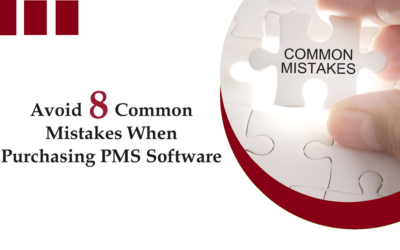
Are you considering investing in new Enterprise Resource Planning (ERP) software for your business? If so, you are not alone. An increasing number of businesses are turning to ERP systems to help them manage their operations more efficiently and get better insights into their performance. But before you jump in and purchase an ERP software package, there are several things you should consider to ensure it will meet the needs of your organization and provide the best value for money.
In this blog post, we’ll explore some of the things you should keep in mind when purchasing a new ERP system.
Things To Consider When Purchasing a New ERP software
When it comes time to purchase a new ERP software, there are many different factors that you need to take into consideration in order to make the best decision for your business. Here are some of the things that you should keep in mind:
1. What are your specific needs?
Before you start shopping around, it’s important to sit down and think about what exactly you need from your new ERP software. What processes do you need it to automate? What features are must-haves? Having a clear idea of your needs will help you narrow down your options and make choosing the right software much easier.
2. How easy is it to use?
One of the most important things to consider when choosing ERP software is how user-friendly it is. After all, if your employees can’t figure out how to use it, then it’s not going to be very effective. Look for software that is intuitive and easy to use, with step-by-step instructions or tutorials available if needed.
3. What kind of support does it offer?
If something goes wrong with your ERP software, you’re going to want to know that there’s someone who can help you fix the problem quickly. Look for a vendor who offers excellent customer support, either through phone, email, or live chat. This way, you’ll know that help is always available if you need it.
Implementation
When it comes to implementing a new ERP software, there are a few things you need to take into consideration. Below are listed a few key points:
– who will be responsible for the project?
– what is the timeline for the project?
– what is the budget for the project?
– what resources will be required (internal and external)?
– what is the expected ROI?
– how will you measure success?
These are all important factors to consider when purchasing a new ERP software because they will have a direct impact on the success of your implementation. If you don’t have a clear plan or budget, it’s likely that your implementation will suffer. Make sure you involve all stakeholders in the decision-making process and that everyone is on board with the plan before moving forward.
Costs
When it comes to enterprise resource planning (ERP) software, the costs can vary greatly depending on the features and functionality you need. Here are some things to consider when purchasing new ERP software:
1. Upfront costs: The upfront cost of ERP software can vary depending on the vendor and the specific software package you choose. Be sure to get quotes from multiple vendors before planning.
2. Implementation costs: In addition to the upfront cost of the software, you will also need to budget for implementation costs. These can include things like training, consulting, and customizations.
3. Recurring costs: After your initial investment, there will be recurring costs associated with using ERP software. These can include things like licensing fees, maintenance, and support.
4. Total cost of ownership: When considering an ERP software purchase, it’s important to look at the total cost of ownership (TCO). This includes all of the aforementioned costs as well as other factors like hardware, infrastructure, and integration.
5. Return on investment (ROI): Ultimately, you want your ERP software purchase to generate a positive return on investment (ROI). Be sure to calculate your expected ROI before making a final decision on which software to buy.
Modules
There are a few different types of modules that are commonly found in ERP software. Here is a brief overview of each type:
-Financial modules handle all the accounting and financial aspects of your business. This includes things like invoicing, accounts receivable, and accounts payable.
-Inventory modules help you keep track of your inventory levels, reorder products, and track sales data.
-Sales and customer relationship management (CRM) modules manage your sales pipeline, customer data, and marketing campaigns.
-Project management modules help you plan and execute projects, track progress, and manage resources.
-Human resources (HR) modules handle employee data, payroll, benefits administration, and compliance with labor laws.
When considering which ERP software to purchase, it is important to think about which modules will best meet the needs of your business. Do you need all of the above module types? Or just a few? Work with your team to determine which modules are essential for your business and make sure that the software you choose has those modules included.
Customization
When it comes to choosing an ERP software, one of the things you need to consider is customization. How much control do you want over the software? Are you looking for something that is out-of-the-box and easy to use, or are you willing to put in the time and effort to customize the software to fit your specific needs?
If you’re not sure how much customization you’ll need, it’s worth talking to a few different ERP software vendors and getting their opinion on what would be best for your business. In some cases, they may even be able to give you a demo of their software so that you can see how it works and what options are available.
At the end of the day, it’s important to choose an ERP software that will work well for your business now and in the future. By taking the time to consider all of your options, you can make sure that you’re making the best decision for your company.
Security
When it comes to security, there are a few things to consider when purchasing new ERP software. First and foremost, you’ll want to make sure that the software is compliant with all relevant security standards. This includes standards like PCI DSS, HIPAA, and SOX. The software should also have robust user authentication and authorization controls in place. Additionally, the data should be encrypted both at rest and in transit. Finally, you’ll want to have a solid disaster recovery plan in place in case of any unforeseen events.
Hosting
When it comes to hosting your new ERP software, there are a few things you need to consider. The first is whether you want to host the software on-premises or in the cloud. On-premises can be more expensive upfront but gives you more control over your data. Cloud hosting is cheaper and makes updates and upgrades easier, but you’ll need to make sure your data is secure.
The second thing to consider is what kind of support you’ll need. If you are not comfortable with technical things, then you’ll want to make sure the company you purchase from offers good customer support. You should also ask about backup and disaster recovery plans in case something happens to your data.
Support
When it comes to ERP software, support is key. You want to make sure that you purchase a product from a company that will be there to help you through the implementation process and beyond. Here are a few things to consider when choosing an ERP software vendor:
1. Do they offer 24/7 support?
2. What is their average response time?
3. Do they have a dedicated support team?
4. What is included in their support package?
5. Have they won any awards for their support services?
By keeping these factors in mind, you can be sure that you select a vendor that will provide the level of support you need to ensure a successful ERP implementation.
Training
When it comes to training employees on new ERP software, there are a few things to consider. The first is the size of your company and the number of employees that will need to be trained. The second is the timeline for training. And the third is the budget for training.
To start, you’ll want to consider the size of your company and the number of employees that will need to be trained. The larger the company, the more employees that will need to be trained. And, of course, the more employees that need to be trained, the longer it will take and the more expensive it will be.
Next, you’ll want to think about the timeline for training. How quickly do you need your employees to be up and running on the new software? Do you have a specific deadline in mind? Keep in mind that training can take anywhere from a few weeks to a few months, depending on how complex the software is and how much experience your employees already have with similar systems.
Finally, you will need to consider your budget for training. Training can be done in-house or by an outside provider. If you are doing it in-house, you’ll need to factor in the cost of employee time as well as any materials or licenses required. If you are using an outside provider, you’ll need to factor in their costs as well as travel expenses if they’re coming to your location.
By taking all these factors into consideration, you can come up with an effective training plan for your employees on the new ERP software. For example, Magnolia ERP, its and end to end ERP software useful for all range of businesses. For more details, read how is the Magnolia ERP bringing revenue to an organization.
Conclusion
Implementing a new ERP software can be a complex process, and it’s important to make sure that you take the time to carefully consider all of your options. With careful research and planning, you can ensure that you choose the right ERP software for your business needs. By considering factors such as scalability, user-friendliness, integration capabilities, data security, cost-effectiveness, and customer service when making this decision can help you make an informed decision about which system is best for your company





0 Comments